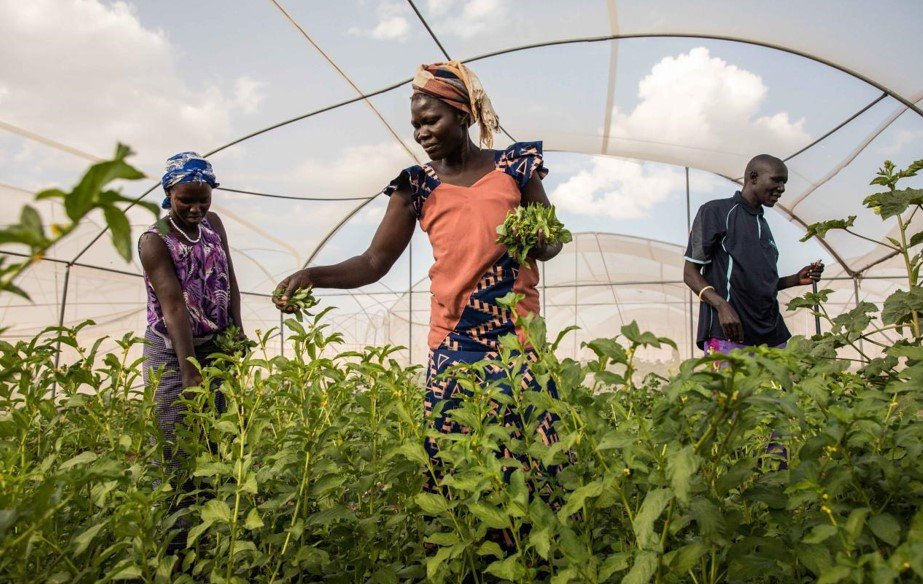Why small farmers need climate-tied crop insurance

Climate change is making extreme weather events like droughts, floods, and crop diseases more common.
Farmers in Africa are especially at risk from these problems, which can hurt their ability to grow food and make money.
This is a big issue because farming is very important in Africa – it makes up 16 percent of the economy and gives jobs to about 60 percent of people.
Despite this, only a small amount of money meant to fight climate change reaches Africa. Also, very few farmers in Africa have insurance to protect them when bad weather destroys their crops.
For example, when a big storm called cyclone Idai hit several African countries in 2019, only 7 percent of the $10 billion in damage was covered by insurance.
To help small farmers deal with these problems, we need to give them insurance. Insurance can protect farmers when they lose crops due to bad weather.
However, not many people talk about insurance compared to other financial services like loans and savings.
This has led to many people in East Africa not knowing much about insurance. In fact, only about three percent of people in the region have insurance, which is very low compared with other places like South Africa, where 17 percent of people have insurance.
There are several reasons it’s hard to provide insurance to farmers. Many farmers don’t know about insurance or how it can help them.
Insurance companies often don’t have products that work well for small farmers. Farming is risky, so insurance companies might not want to offer insurance unless they can make money from it.
It’s difficult and expensive for insurance companies to work with many individual farmers. Governments often don’t know how to make insurance easy for farmers to get.
To solve these problems, different groups need to work together. This includes governments, insurance companies, companies that collect and study data, groups that represent farmers, banks and other financial companies, and organisations that help people in need.
These groups can work together in different ways. Governments can teach farmers about insurance, help pay for some of the insurance cost, and make rules that encourage more people to get insurance. Data companies can study information from satellites to help make sure insurance prices are fair.
Insurance companies can create and sell insurance products. Farmer groups can help spread information about insurance to farmers. Banks can offer ways to help farmers pay for insurance or include insurance with other services.
Helper organisations can teach people about insurance and ask for money to research better insurance options.
Some African governments are starting to see how important insurance is for farming and the economy.
They’re trying to make it easier and safer for insurance companies to work in their countries.
For example, in Uganda, the government is working with 13 insurance companies to offer insurance to farmers.
The government pays for part of the insurance cost, with more help for smaller farmers and those in areas that often have bad weather. Since this programme started, many more farmers have obstained insurance, and banks have given out more loans to farmers.
Kenya has a similar programme to protect cattle farmers from losing money due to climate problems. The government has paid part of the insurance cost, and farmers have received money when they’ve lost animals due to bad weather.
These examples show that when governments and private companies work together, they can create insurance that really helps farmers.
With the right support and new ideas, this kind of insurance can help African farmers grow more food and make a steady income, even when the weather is bad.
— The writer is a Financial Inclusion Officer at We Effect












